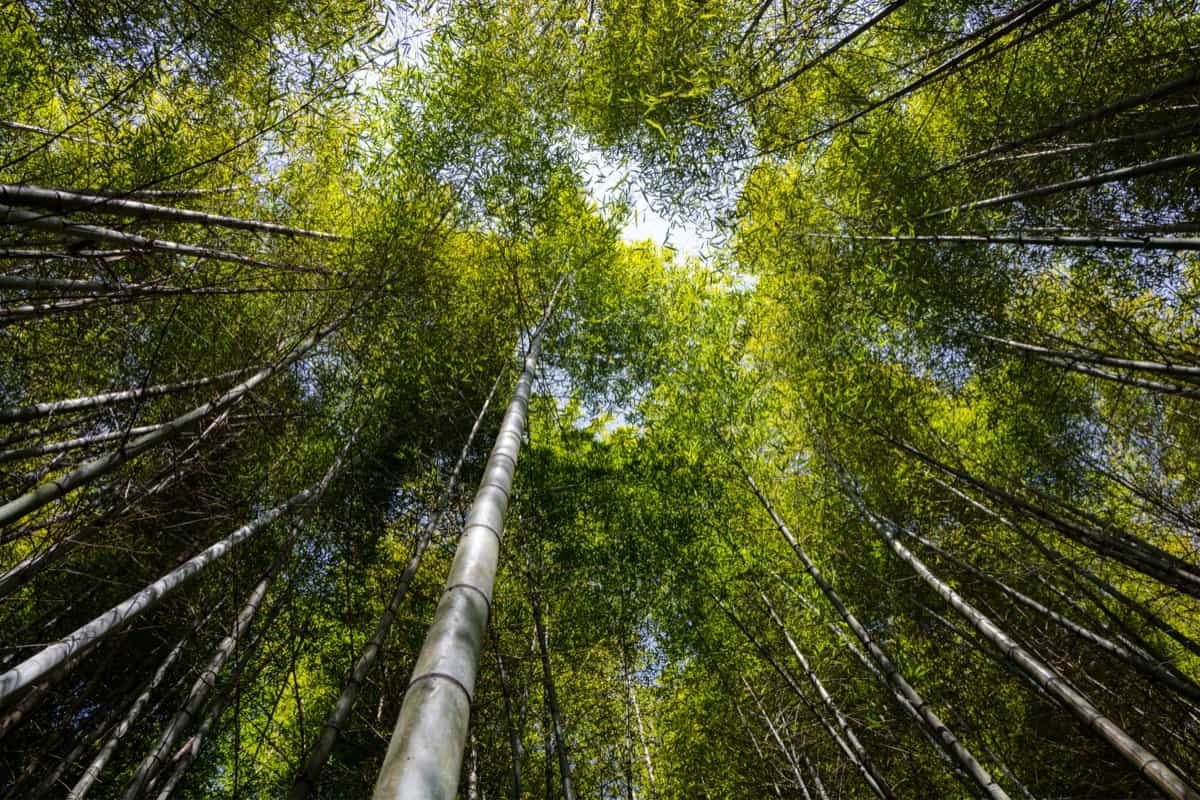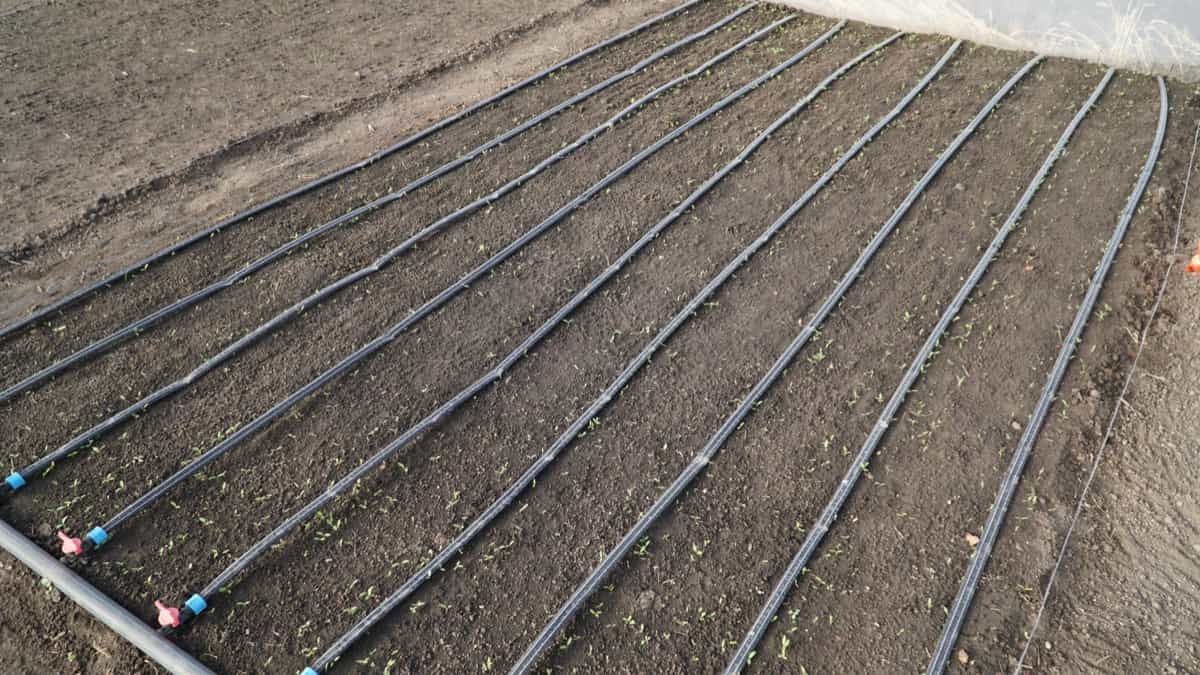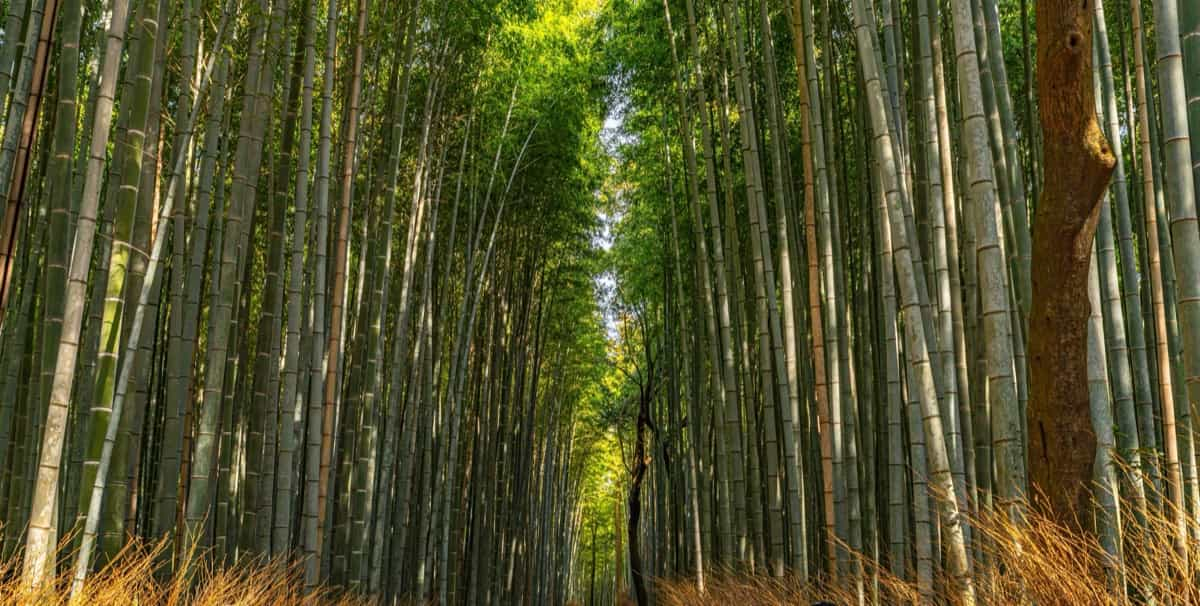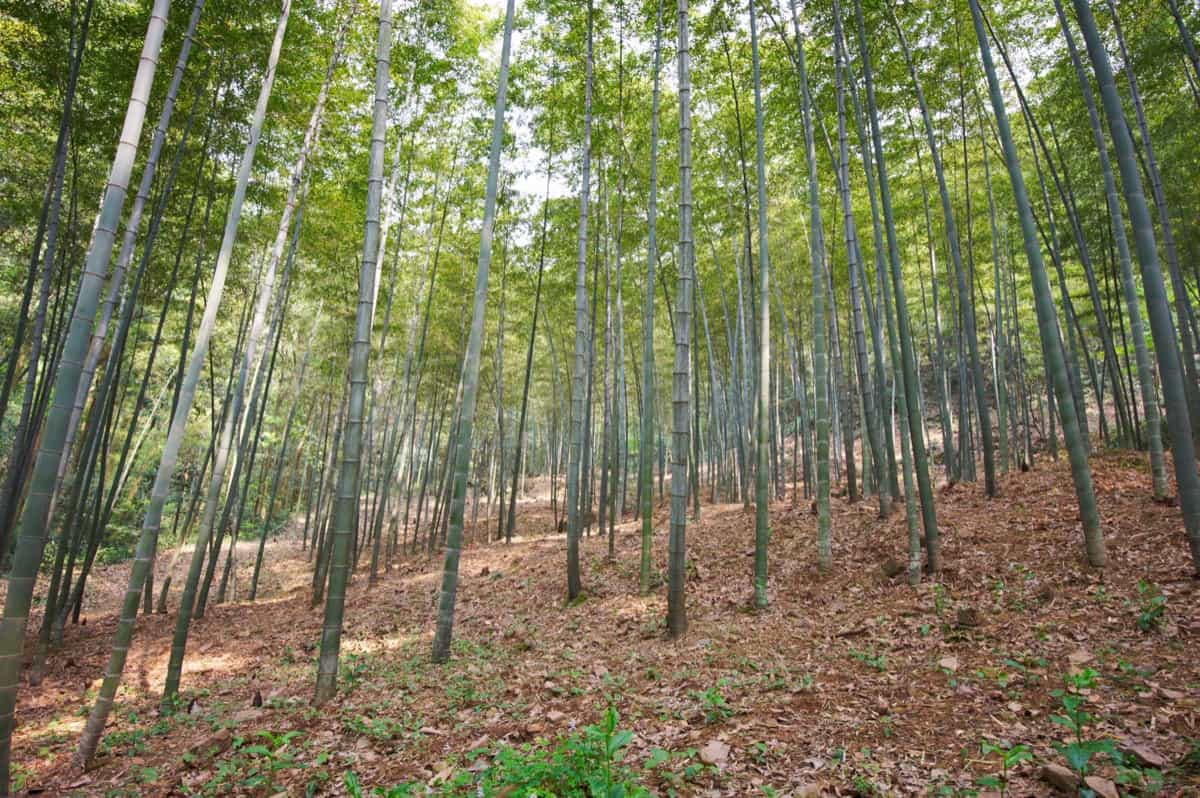Drip irrigation is a pivotal component in optimizing bamboo plantation yields, ensuring efficient water usage, and promoting sustainable agricultural practices. The installation cost of drip irrigation in bamboo plantations varies based on factors like acreage, terrain, and equipment specifications.

On average, the initial cost can range from Rs. 1,60,000 to Rs. 2,00,000 per acre. This includes expenses for drip lines, emitters, filters, pumps, and other essential components. While the initial cost sseem substantial, the long-term benefits, such as water conservation, improved nutrient delivery, and enhanced crop productivity, make it a sound investment.
Evaluate the Cost of Drip Lines and Emitters for Bamboo Fields
Drip lines, which deliver water directly to the plant roots, typically range from Rs. 8 to Rs. 15 per meter, depending on quality and specifications. Emitters responsible for controlling the flow and distribution of water can cost between Rs. 5 and Rs. 10 per unit. Considering the average bamboo plantation density, the cost per acre for drip lines and emitters can sum up to Rs. 20,000 to Rs. 22,000. It’s essential for farmers to carefully assess their specific requirements and choose cost-effective yet durable components to maximize the benefits of drip irrigation while optimizing the investment for bamboo cultivation.
Analyze the Expense of Filters and Pressure Regulators in Drip Irrigation Systems
In drip irrigation systems for bamboo plantations, filters, and pressure regulators play a pivotal role in ensuring the efficiency and longevity of the system. Filters, responsible for removing debris and particles from the water, are priced between Rs. 2,000 and Rs. 5,000 per unit, depending on their capacity and filtration capabilities.
Pressure regulators, crucial for maintaining a consistent and optimal water pressure throughout the system, typically cost between Rs. 1,500 and Rs. 3,000 each. Considering the average bamboo plantation size, the combined cost for filters and pressure regulators per acre can range from Rs. 15,000 to Rs. 20,000.
Estimate the Cost of Automation and Control Systems in Drip Irrigation for Bamboo
Automation and control systems enhance the precision and effectiveness of drip irrigation in bamboo plantations, offering farmers greater control over water delivery. The cost of automation systems varies based on factors such as complexity and integration capabilities. Basic automation kits, including timers and simple controllers, can be acquired for Rs. 15,000 to Rs. 20,000 per acre.
More advanced systems with sensor-based technologies and remote monitoring capabilities may range from Rs. 30,000 to Rs. 35,000 per acre. While the initial investment in automation and control systems is significant, the long-term benefits, including water conservation and optimized resource utilization, make it a strategic investment for bamboo farmers.
Assess the Price of Pumps and Pumping Stations
The cost of pumps and pumping stations is a critical factor in the implementation of drip irrigation systems for bamboo farming. Pumps suitable for bamboo plantations typically range from Rs. 25,000 to Rs. 30,000, depending on factors like water source, flow rate requirements, and power specifications. Larger bamboo farms may necessitate more powerful pumps, impacting the overall investment. In addition, the cost of a pumping station, which includes infrastructure for water intake, filtration, and pressure regulation, can range from Rs. 45,000 to Rs. 50,000 per acre.
In case you missed it: Best Fertilizers for Bamboo: Organic, Synthetic, Slow-release, NPK, and Liquid Fertilizers

Explore the Cost of Fertilizer and Nutrient Injection Systems
The cost of these systems varies based on the type and complexity. Basic injector units may range from Rs. 5,000 to Rs. 15,000 per acre, providing essential nutrient supplementation. Advanced systems with precise control mechanisms and automated nutrient delivery can cost between Rs. 20,000 and Rs. 25,000 per acre.
The expense is influenced by factors such as the size of the plantation, desired nutrient levels, and the sophistication of the injection technology. Investing in these systems allows bamboo farmers to tailor nutrient delivery, promoting healthier plant growth and optimizing yield potential while minimizing waste.
Calculate the Labor and Installation Costs
The labor and installation costs for drip irrigation in bamboo plantations depend on factors such as terrain, system complexity, and acreage. On average, skilled labor costs for installation range from Rs. 10,000 to Rs. 12,000 per acre. Additionally, the cost of materials, trenching, and system setup can vary from Rs. 10,000 to Rs. 13,000 per acre.
Overall, the combined labor and installation costs for drip irrigation in bamboo cultivation typically amount to Rs. 20,000 to Rs. 25,000 per acre. Accurate assessment of these expenses is vital for bamboo farmers to develop realistic budgets and maximize the efficiency of their irrigation systems.
Factor the Maintenance and Repair Expenses
Maintenance and repair expenses for drip irrigation systems in bamboo farming are essential considerations for sustaining long-term productivity. Routine maintenance, including cleaning filters and inspecting emitters, costs approximately Rs. 5,000 to Rs. 10,000 per acre annually. Repair costs for fixing leaks or replacing damaged components can range from Rs. 10,000 to Rs. 15,000 per incident.
Allocating a budget of Rs. 15,000 to Rs. 25,000 per acre for maintenance and repair ensures the continuous functionality of the drip irrigation system, preventing potential disruptions and preserving bamboo crop health.
Energy Costs Associated with Drip Irrigation in Bamboo Cultivation
Energy costs associated with drip irrigation in bamboo cultivation involve powering pumps and automation systems. The electricity required for a pump, depending on its horsepower and usage, can range from Rs. 5,000 to Rs. 10,000 per acre annually. Automation and control systems contribute additional energy expenses, averaging between Rs. 7,000 and Rs. 12,000 per acre. The total energy costs for drip irrigation in bamboo cultivation typically amount to Rs. 12,000 to Rs. 20,000 per acre annually.
In case you missed it: How to Grow Lucky Bamboo in Soil: A Guide for Planting to Care

Drip Irrigation Cost for Bamboo Plantation Per Acre
| Item | Cost Range (Rs.) |
| Drip Lines & Emitters | 20,000 to 22,000 |
| Filters and Pressure Regulators | 15,000 to 20,000 |
| Automation and Control Systems | 30,000 to 35,000 |
| Pumps and Pumping Stations | 25,000 to 30,000 |
| Fertilizer and Nutrient Injection Systems | 20,000 to 25,000 |
| Labor and Installation Costs | 20,000 to 25,000 |
| Maintenance and Repair Expenses | 15,000 to 25,000 |
| Energy Costs | 12,000 to 20,000 |
Government Subsidy for Drip Irrigation in for Bamboo Plantation
Government subsidies for Bamboo drip irrigation are crucial in promoting sustainable agricultural practices. These financial incentives aim to offset the initial investment and operational costs, making water-efficient drip irrigation more accessible to farmers.
Under the PDMC (Per Drop More Crop) component in the PMKSY scheme, the Government of India provides financial assistance to the farmers to implement micro irrigation viz drip irrigation and sprinkler irrigation at the farm level. The subsidy will be 55% for the small and marginal farmers, whereas it will be 45% for the other farmers.
Compare the Overall Operational Costs of Drip Irrigation vs. Traditional Methods in Bamboo Farming
The overall operational costs of drip irrigation versus traditional methods in bamboo farming present a nuanced comparison, considering various factors. Drip irrigation systems offer efficiency gains by delivering water directly to plant roots, minimizing wastage. While the initial investment in drip irrigation is higher, ranging from Rs. 50,000 to Rs. 1,50,000 per acre, it often leads to long-term savings due to reduced water consumption and increased crop yield.
In contrast, traditional methods, such as flood irrigation, may incur lower upfront costs but tend to be less efficient. Flood irrigation can result in water wastage, soil erosion, and uneven distribution, leading to increased expenses for water resources and potentially lower bamboo yields. Additionally, traditional methods may necessitate more labor, further impacting operational costs.
In case you missed it: Utilizing Technology in Modern Saffron Farming Practices

Conclusion
In conclusion, understanding the cost dynamics of drip irrigation in bamboo plantations is crucial for informed decision-making. While the initial investment seem significant, the long-term benefits, including water conservation and enhanced yield, justify the expense. Exploring subsidies further makes drip irrigation financially accessible. By carefully evaluating installation costs and available support, bamboo farmers can adopt this sustainable practice, ensuring efficient water management and promoting the overall success of their plantations.
- Feed Your Flock for Less: Top 10 Tips to Save on Chicken Feed
- Ultimate Guide to Ossabaw Island Hog: Breeding, Raising, Diet, and Care
- Hatching Answers: The Top 10 Reasons Your Chickens Aren’t Laying Eggs
- Eggs and Economics: Breaking Down the Cost of Raising Backyard Chickens
- Defend Your Greens: Proven Methods to Keep Iguanas Out of Your Garden
- Ultimate Guide to Cinnamon Queen Chicken: A Comprehensive Guide for Beginners
- Ultimate Guide to California Tan Chicken: Breeding, Raising, Diet, Egg-Production and Care
- Ultimate Guide to Marsh Daisy Chicken: Breeding, Raising, Diet, and Care
- 10 Types of Chicken Farming Businesses You Can Start for Profits